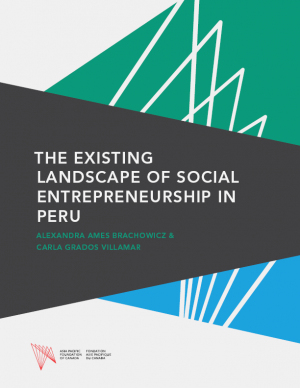A ‘social enterprise’ is defined as a formal and private organization whose mission is to intentionally contribute to the solution of a key social and/or environmental challenge that affects vulnerable populations through market strategies. Today, social enterprises (SE) are organizations that, due to their impact, play a strategic role in the welfare of society. Nevertheless, SEs face a variety of challenges which are primarily attributed to the lack of a general conceptual understanding of SEs and the lack of supporting organizations to help with their growth, among other barriers. SEs can be considered as a specialized sub-section of Micro, Small, and Medium Enterprises (MSMEs) as both share similar business challenges. However, the former faces more obstacles in their development while the latter does not have an intentional primary focus on solving social or environmental issues.
Furthermore, SEs also have commercial competitive advantages in a market that is increasingly looking for sustainable goods and products. Even though this trend is not strong in Peru, it is steadily growing and has the potential to provide valuable opportunities for MSMEs that choose to be more sustainable. Hence, it is imperative that MSMEs – which represent 99.6% of the private sector in Peru – develop and commit to sustainability practices which ultimately contributes to the sustainable development of the country. However, public resources available to promote sustainable MSMEs is limited in Peru, and this is especially true for SEs where these public resources are non-existent.
